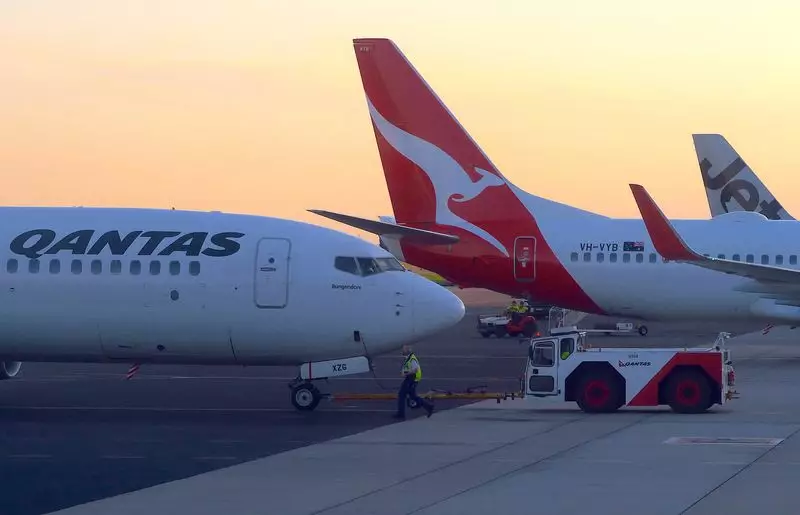In a significant legal decision delivered by the Federal Court in Sydney, Qantas Airways has been ordered to pay A$170,000 (approximately $114,000) to three baggage handlers unlawfully dismissed during a tumultuous period in 2020. This ruling sends a strong message about accountability and labor rights, particularly as the airline faces continued scrutiny over its treatment of staff amidst cost-cutting measures during the COVID-19 pandemic.
The dismissed baggage handlers were part of a broader group of about 1,700 ground staff whose jobs were outsourced. Qantas defended its actions as necessary to mitigate financial losses during a challenging economic climate. However, Federal Court Judge Michael Lee characterized the dismissals as unlawful, highlighting the emotional and economic consequences borne by the affected workers. The financial remedies awarded—A$30,000, A$40,000, and A$100,000 for non-economic loss—are seen as an acknowledgment of the distress caused by Qantas’s decision to lay off long-standing employees to stave off potential industrial action.
Implications for Qantas and Its Workforce
The ruling not only establishes a precedent for compensation but also sets the stage for an ongoing legal battle regarding the rights of approximately 1,700 former workers. Qantas is expected to use the payments to these individuals as a framework to negotiate a broader settlement with the Transport Workers Union (TWU), which has been a vocal advocate for the rights of dismissed employees. The airline’s contention that its actions were justified as a cost-cutting measure is now under question, forcing Qantas to rethink its approach to employee relations and labor negotiations.
This ruling comes amid a series of controversies that have marred Qantas’s reputation in recent years. Besides the unlawful sackings, the airline faced allegations of misleading consumers by selling tickets for flights that were already canceled during the pandemic recovery phase. Qantas has also been accused of lobbying against increased competition from rival airlines. These developments have left the airline under a cloud of distrust, leading many stakeholders, including customers and employees, to question its commitment to ethical business practices.
The Call for Change and Future Directions
As Qantas aims to rebuild its tarnished image, the new CEO, Vanessa Hudson, has emphasized the company’s responsibility to learn from past mistakes. Her remarks suggest an acknowledgment of the need for cultural change and increased transparency within the organization. Michael Kaine of the TWU has articulated the urgent need for Qantas to follow through on its commitments, stating that the airline must prioritize justice for affected workers.
The upcoming court date on November 15 will be a pivotal moment, as it will set the groundwork for the negotiation of compensation for the remaining sacked workers. Moving forward, Qantas must not only address the legal ramifications of this ruling but also foster a more respectful and equitable relationship with its workforce to restore confidence and credibility among all stakeholders.
This ruling may mark the beginning of a more accountable and empathetic era for Qantas. The airline’s next steps will be closely watched, not only by those directly involved but also by a broader audience that is increasingly demanding corporate responsibility across industries.

